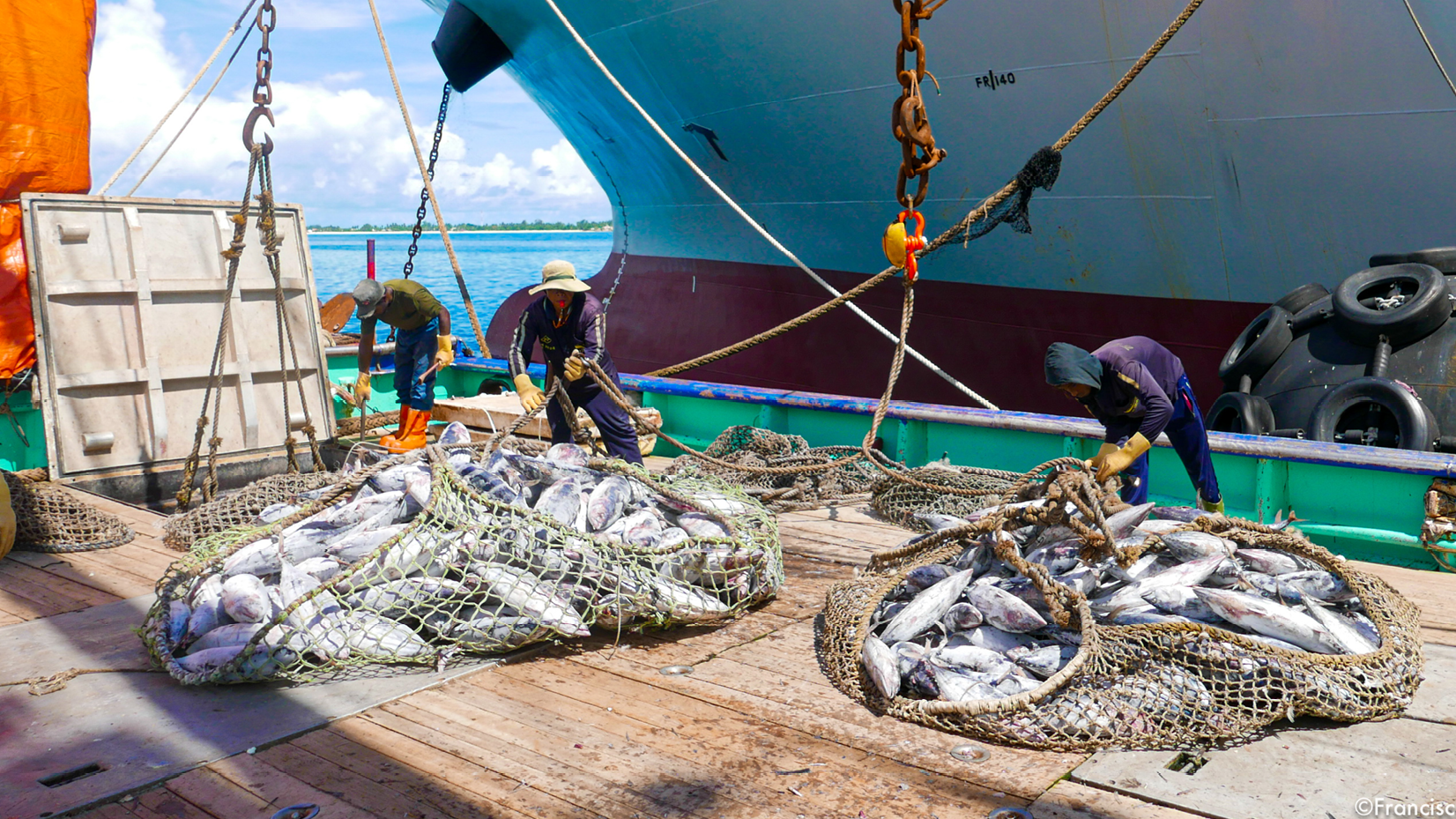Historic Tuna management procedure adopted
Tuesday 6 December 2022 | Written by Supplied | Published in Business, Economy, Environment, National

The crew of a fishing vessel prepares cargo net loads of frozen tuna. Photo: Francisco Blaha/22050322
A management procedure was adopted at the 19th Regular Session of the Western and Central Pacific Fisheries Commission in Da Nang, Vietnam over the weekend but one NGO says it’s “disheartening” the agreement is non-binding.
The WCPFC is the governing body that looks after the tuna stocks in the Western and Central Pacific Ocean which includes Cook Islands waters.
The Cook Islands is also one of 26 member countries that are part of the Commission and had delegates at the conference.
The Commission’s annual meeting concluded on Saturday with member states agreeing to adopt a management procedure for skipjack which is a pre-agreed framework designed to determine the level for fishing.
The idea is to minimise political negotiations and leave the decision-making to science which will set the level of fishing. It’s been the biggest focal point for the WCPFC meeting this year.
It’s the first time a management procedure has been agreed to for one of the major tuna stocks in the region.
The secretary general of the Pacific Islands Forum Fisheries Agency (FFA), Dr Manumatavai Tupou-Roosen said the decision was a significant step.
However, Glen Holmes, an officer with Pew Charitable Trusts, said “while it is a step in the right direction, it is disheartening that members have not made the agreement binding”.
“To optimise management of this stock and ensure a stable supply for the market, members must revisit this decision and agree to realise the full benefit of the management procedure as soon as possible,” Holmes said.
“The skipjack tuna population is at a healthy level, but it has become more depleted over time. The management procedure adopted today has been tested many times by scientists to account for uncertainty that could affect the skipjack fishery now and in the future.”
Tupou-Roosen said given the “unpredictability and uncertainty” that could arise from changes to science and the fishery it was important to give members time to evaluate it before it became fully implemented.
“During the time this management procedure will run, outcomes will come from it, and it doesn’t dictate what the harvest strategy will be or what the end management procedure is because it’s an interim measure.”
Tupou-Roosen said the procedure has been put in place for five years and will lapse after unless members agree. However, she added that would not happen and FFA members remained committed to harvest strategies.
Tupou-Roosen said she did not have a date for when she wanted a fully implemented harvest strategy to come into effect.
Meanwhile, the United States and Canada’s proposal to ban member countries from using both wire trace and shark lines for longline fisheries was successful.
Shark lines are hooks suspended from the float which sit in shallow water aimed at targeting sharks. Wire trace is used instead of nylon to connect hooks to the mainline and prevents sharks from biting free.
The proposal said based on scientific recommendations, banning both shark lines and wire leaders could reduce mortality of the silky and oceanic whitetip sharks by 30.8 and 40.5 per cent respectively.
The Cook Islands enacted shark conservation regulations in its own waters in 2012 and already prohibits the use of wire leaders.
- Caleb Fotheringham in Da Nang, Vietnam. Fotheringham’s trip was made possible by The Ocean Foundation.














































